
Empowering Charities to Grow & Thrive
Hello, I'm Amelia Epton, the founder of Amelia Epton Consultancy.Thank you for your interest in my services.
Empowering Charities to Achieve Lasting Impact
My mission is to empower charities and organisations to achieve their goals and create lasting change in the communities they serve. I specialise in helping charities secure funding, optimise operations, and expand their impact. I also bring experience as a Grant Assessor with The Fore, I bring first-hand funder insight to guide stronger proposals, sharpen governance and align your work with what funders truly look for.
Tailored Solutions for Your Charity’s Unique Needs
Whether you need expert grant writing, strategic planning, funding pipeline development, or operational support, I offer tailored solutions to meet your charity’s unique needs.
Why Choose me?
With over 16 years of experience, I am committed to supporting your organisation at every stage, ensuring you have the resources, knowledge, and guidance to thrive.
Let’s Work Together
Let’s work together to amplify your mission and drive meaningful change.
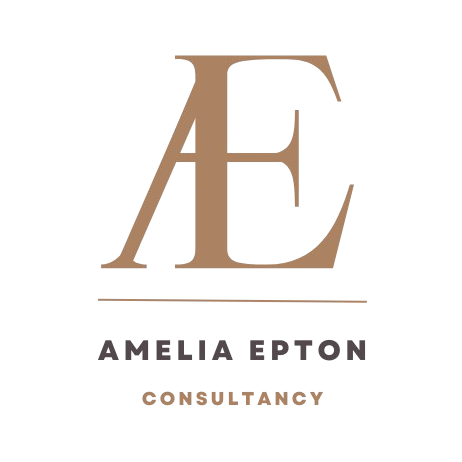
Get In Touch Today!

About Amelia Epton
Experienced Charity Consultant & Grant Writing Expert
With over 17 years of professional experience in the not-for-profit sector across the UK, including 7 years as the CEO of a small charity, Amelia Epton has a proven track record in helping charities grow, optimise operations, and secure funding. Her expertise spans areas of governance, strategic planning, financial and business operations, marketing, communications, and grant writing.As a specialist in grant writing, Amelia has successfully written applications worth seven figures and secured six-figure grants for the charities she has worked with. To date, she has raised over a million pounds in funding through her expertise.In addition I am a Grant Assessor with The Fore, I review applications from the inside, which means I know how funders evaluate strategy, outcomes, risk and sustainability. I use that insight to shape your bids so they match assessment criteria, minimise risk and stand out in highly competitive rounds.
Driving Positive Change & Sustainable Growth
Amelia has extensive experience working with Boards of Trustees to develop strategic direction, business plans, policies, and procedures. She ensures that charities comply with legislative requirements, including risk management, health and safety, and overall governance. Amelia is passionate about driving positive change and supports charities in their mission to make a meaningful impact.In addition to her technical expertise, Amelia enjoys coaching and mentoring charity leaders, sharing her knowledge to empower others. Her warm, personable approach ensures that she builds strong relationships and works collaboratively with others to achieve shared goals.
“I am dedicated to driving positive
change and making a meaningful
impact”
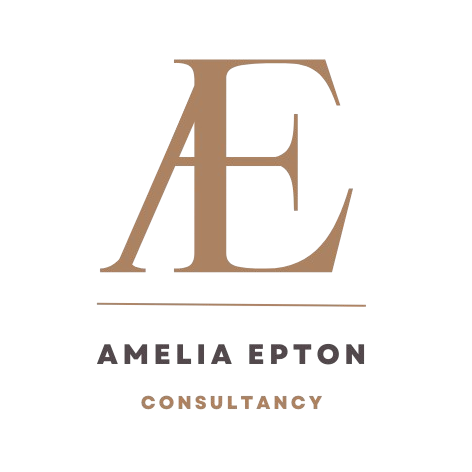
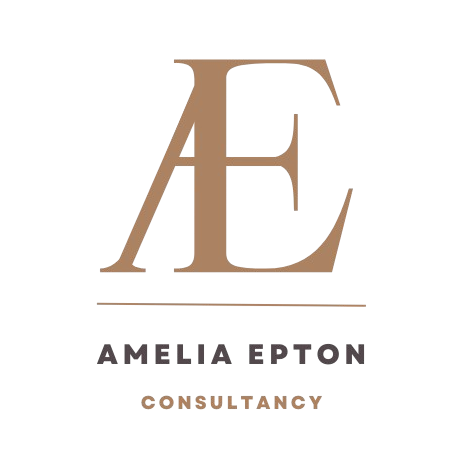
My Services
I offer expert consultancy services tailored to the needs of charities and non-profits. Whether you are looking for grant writing support, strategic planning, governance advice or bid writing training, I bring 16 years of experience to help your organisation thrive. Explore each area below to learn how I can support your mission.
CHARITY CONSULTANCY
I provide tailored charity consultancy services designed to strengthen your organisation’s foundations and drive sustainable impact. With over 16 years of experience in the not-for-profit sector, I work closely with charity leaders to enhance strategic direction, governance, and capacity.I provide strategic planning that aligns with your mission and responds to real community needs. My consultancy also supports boards of trustees to lead with confidence, helping improve governance, compliance, and risk management. I offer practical guidance to develop internal structures and operational processes that boost your charity’s effectiveness.Whether you are navigating growth, managing change, or responding to challenges, I offer the insight, structure, and support needed to move forward with clarity and purpose.Let’s work together to build a charity that is resilient, impactful, and ready for the future.Choose the support that fits your needs:
Traditional Charity Consultancy →
Tailored consultancy for charities and social enterprises, including funding strategy, bid writing, governance, and organisational development.
Helping Businesses Create Charitable Arms and Foundations →
Specialist support for businesses looking to expand their CSR through a charitable arm or foundation, from Charity Commission registration to operational planning, funding growth and impact measurement.
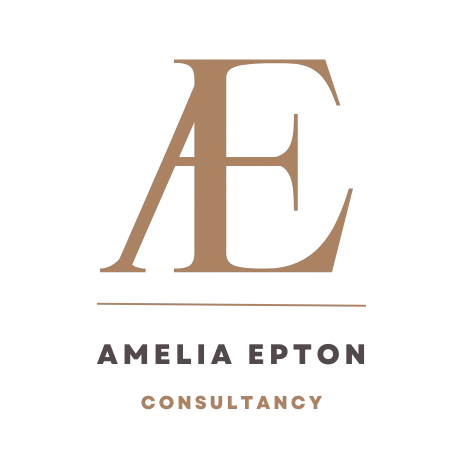
Grant Writing Expertise
With over 17 years’ experience and a proven track record of success securing funding for UK charities, I provide expert grant writing services that help charities secure essential funding and build long-term financial sustainability.I tailor each application to reflect your organisation’s unique mission, goals, and capacity. Whether you are applying for a small local grant or a large-scale, multi-million-pound fund, I bring strategic insight and precision to every bid.My approach includes identifying the right funding opportunities, creating a long-term funding pipeline, aligning proposals with funder priorities, and writing compelling, evidence-based applications. By working closely with you to understand your work and impact, I produce persuasive, high-quality bids that maximise your chances of success and unlock transformational funding.As a Grant Assessor with The Fore, I review applications from the inside, which means I know how funders evaluate strategy, outcomes, risk and sustainability. I use that insight to shape your bids so they match assessment criteria, minimise risk and stand out in highly competitive rounds.
Want to try it yourself first?
Download my free guide, packed with key principles from my full Bid Writing Guide, to help you get started with confidence.When you are ready to save time and take your grant applications further, whether you need a professionally written bid, expert review, or full support securing funding - my grant writing services are here to help you maximise your impact.
Sign up to receive more tips, advice and guidance -->
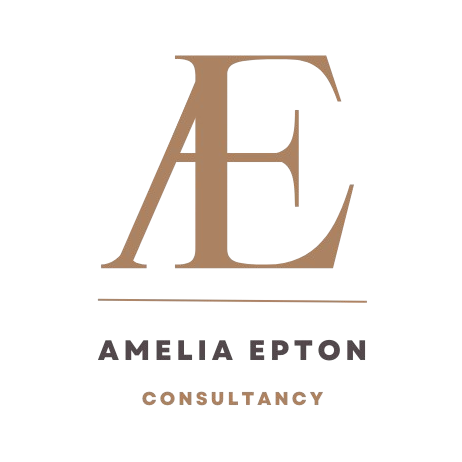
TRUST AND FOUNDATION FUNDRAISING STRATEGIES
I support charities to develop and implement effective Trust and Foundation fundraising strategies that increase income and accelerate impact.By working collaboratively with your team, I help to identify clear funding priorities, build a strong and sustainable funding pipeline, and lead on the development of compelling, high-quality grant applications.I also bring insights from my role as a Grant Assessor with The Fore, I review applications from the inside which means I know how funders evaluate strategy, outcomes, risk and sustainability. I use that insight to add into my strategy work.Together, we will design a tailored fundraising plan that aligns with your organisational goals, improves your chances of funding success, and establishes lasting relationships with Funders. My approach ensures your charity is positioned for long-term financial sustainability and continued growth.
Want to try it yourself first?
Download my free guide, packed with key principles from my full Bid Writing Guide, to help you get started with confidence.When you are ready to save time and take your grant applications further, whether you need a professionally written bid, expert review, or full support securing funding - my grant writing services are here to help you maximise your impact.
Sign up to receive more tips, advice and guidance -->
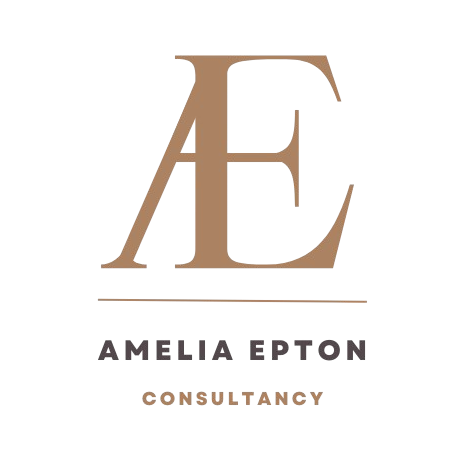
GOVERNANCE & COMPLIANCE
I bring extensive experience working alongside Boards of Trustees to strengthen governance, set strategic direction, and ensure compliance with charity sector regulations. My consultancy supports charities to develop effective business plans, implement clear policies and procedures, and navigate risk and legal responsibilities with confidence.I believe strong governance is the foundation of sustainable growth. My approach empowers charity leaders to build robust structures that support both accountability and ambition.Alongside this, I offer coaching and facilitation to senior leaders, helping them gain clarity, strengthen their leadership, and drive organisational progress.
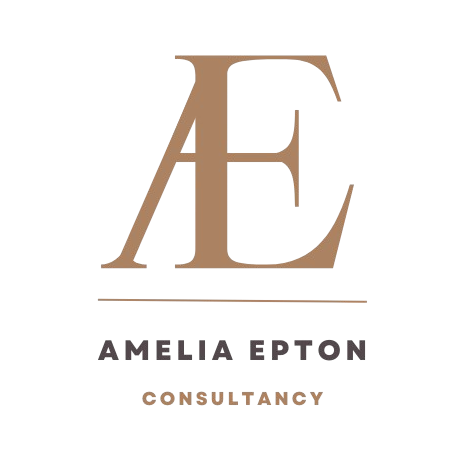
TRAINING
Whether its a self-paced online course or bespoke 1 on 1 mentoring service, my aim is to equip you or your team with the tools to excel in areas such as grant writing, fundraising strategy, and organisational development.
Elevate your grant writing skills with the Bid Writing Excellence Academy. This self-paced, comprehensive training programme is designed to help individuals and organisations master the art of grant writing and secure the funding they need to drive their mission forward.The academy offers a step-by-step guide through the grant writing process, including a written guide and video lessons, providing you with the tools and resources necessary to craft persuasive proposals. You will also have access to practical templates, planning tools, and examples that simplify the grant writing process.Drawing on my experience as a Grant Assessor with The Fore, I show participants how funders evaluate applications and highlight common pitfalls that lead to rejection, giving you the skills to avoid them.In addition to the course, I offer one-on-one mentoring to help refine your strategy and increase your funding success.
To find out more
Click on the button below to learn more about the Bid Writing Excellence Academy and how it can help your charity secure sustainable funding.
To help you get started with writing funding applications, download my free guide – featuring key principles taken directly from my Bid Writing Guide.
Sign up to receive more tips, advice and guidance -->
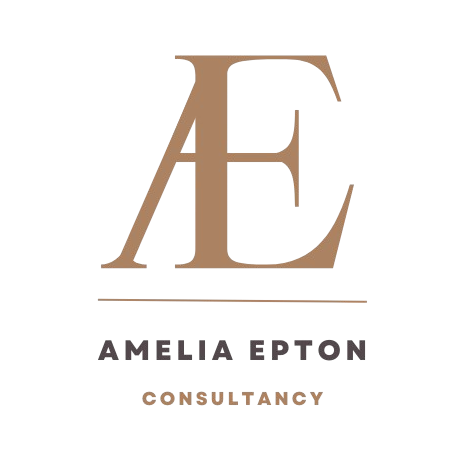
Contact

Let's Work Together!I would love to hear from you! Whether you are looking to discuss how I can support your charity, or if you have any questions about my services, feel free to get in touch.📞 Phone: 07765 353 932
✉️ Email: [email protected]
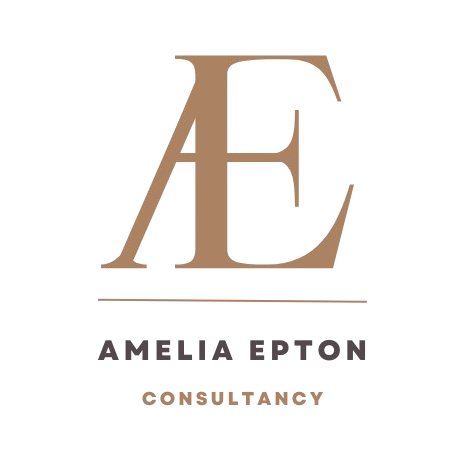
BLOG
Sign up to receive more tips, advice and guidance -->
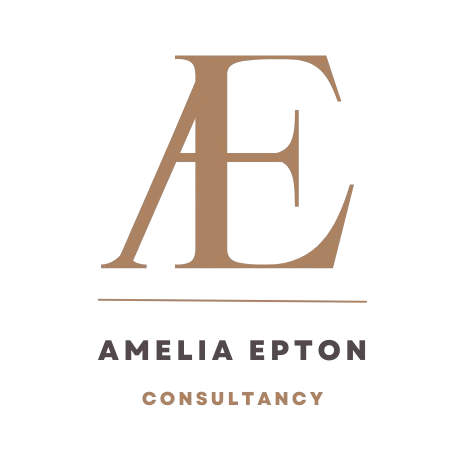
BLOG
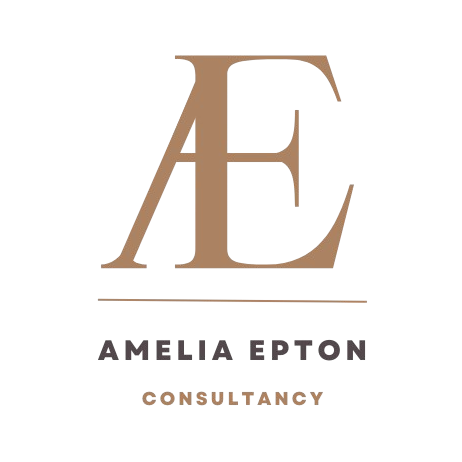
“But I’m a Writer, You Say…” Why You Might Want to Rethink Video in Grant Applications
Why Video Deserves a Place in Your Next Grant Application
In the world of fundraising, charities have long relied on the written word to make their case. As a consultant who has helped dozens of organisations secure essential funding, I’ve always believed in the power of a well-crafted bid: persuasive narratives, robust evidence, and tightly worded impact statements.But recently, the fundraising landscape has shifted. More and more funders are asking for something new: video.At first, I wasn’t convinced. I remembered a high-pressure bid to the LEGO Foundation where I had to deliver everything—our mission, our outcomes, our voice—into a tightly edited 90-second clip. It was exhausting and incredibly difficult to get right.So when I noticed video cropping up more often in funding requirements, I felt sceptical. How could such a short piece of content do justice to the complexity of our work?Then I attended a webinar that unpacked the reasons behind this shift and offered practical guidance for charities. It left me with a much broader view of what’s possible—and why video might be worth a second look.
🎥 The Human Touch Funders Are Looking For
Written applications are still the backbone of most grantmaking processes. But videos can offer something different: connection.They give life to your work. A camera allows you to show your impact, not just describe it.They create emotional engagement. Faces, stories, energy - these are what funders remember.They support your evidence base. Spoken words from service users and team members often land more powerfully than written quotes.They offer accessibility. For some assessors, especially neurodivergent individuals, a concise video may be easier to absorb than dense text.They help you stand out. In a stack of good applications, a well-executed video can be the deciding factor.
📱 Simplicity Over Slick Production
Here’s the good news: you don’t need a film crew. You don’t need a budget. You just need a smartphone and a few good practices:Shoot in landscape mode, ideally in 4K at 30 frames per second.Prioritise clear sound—basic earphones with a mic can work wonders.Use natural light and avoid cluttered backgrounds.Keep the camera steady, using a tripod or stable surface.Turn on grid lines to frame the shot and lock focus and exposure.Your goal isn’t Hollywood-level production—it’s authenticity. Funders want to see the real people and real work behind your cause.
🗣 Structure Still Matters—You’re Just Telling It Differently
The medium may be visual, but the principles of strong storytelling still apply.Keep it short—2 to 3 minutes max.Anchor your message in need, impact, and sustainability.Blend emotion with clarity—use real stories to humanise your data.Include reflections from your team or day-in-the-life moments.Add subtitles to increase accessibility.And here’s a bonus tip: a simple “thank you” from a beneficiary can make a lasting impression. It’s a gesture of gratitude that helps build longer-term funder relationships.
🤝 Be Ethical, Always
Video brings new responsibilities. You’re capturing people’s stories, and that deserves care.Involve participants in planning the content.Be transparent about how the footage will be used.Secure written consent and offer final approval to those featured.Share the finished video with them—acknowledgement builds trust.Ethics aren’t just a compliance box to tick. They’re central to telling stories with dignity and integrity.
Final Thought: Enhance, Don’t Replace
Written applications are still essential but video can lift your bid to the next level.If you’re hesitant, start small. Record snippets from your frontline work, film a volunteer’s insight, or capture a team reflection. Each clip is an opportunity to deepen a funder’s understanding and connection to your cause.And remember: once recorded, video content can be repurposed. Use it in applications, on social platforms, in annual reviews, or as part of your website. It’s a smart investment of time.Video doesn’t need to be daunting, it just needs to be honest. And in the right hands, it could make all the difference.
If you’re looking for support to integrate video into your next funding bid, or want to strengthen your charity’s storytelling, I’d love to help. Get in touch.
About the author: Amelia Epton is a charity consultant, grant writing expert and Grant Assessor with The Fore, offering unique sector insight into funding practices and successful proposal design.
Sign up to receive more tips, advice and guidance -->
BLOG
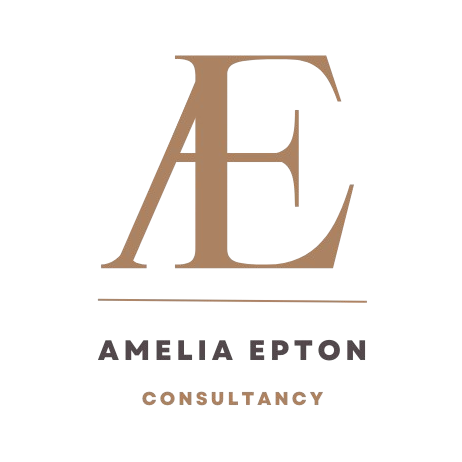
Charities Face Intensifying Competition in
Grant Funding Landscape
Standing Out in a Crowded Field: How Charities Can Compete More Effectively for Grant Funding
Securing funding has never been easy—but in today’s landscape, the competition is sharper than ever.
Charities are producing stronger programmes, better impact data, and more compelling narratives than ever before, yet many still face rejection. Why? Because the number of applicants is at an all-time high, while the pool of available funding is tightening.
High-quality isn’t always enough. In a saturated field, your application must stand out for the right reasons.
Having worked with a wide range of charities across the UK, I know just how challenging this environment can be. Even the most innovative, community-driven projects can miss out on funding due to volume alone. But what I’ve seen time and time again is this: the organisations that succeed are the ones that know how to differentiate themselves.It’s not just about writing a ‘good’ bid—it’s about writing one that connects emotionally, evidences value, and positions your charity as a confident, capable investment. That’s why it’s time for a mindset shift. We need to see grant applications not just as paperwork, but as strategic tools to showcase your story, impact, and alignment with funder priorities.
Seven Practical Strategies to Strengthen Your Funding Applications
1️⃣ Build Strategic PartnershipsCollaborating with like-minded organisations can increase both reach and value. Funders want to see collaboration, not duplication, and partnerships often signal sustainability, breadth, and community insight.2️⃣ Focus on Targeted VolumeIt’s tempting to apply for everything, but a scattergun approach rarely yields results. Instead, prioritise well-aligned bids and submit more of the right applications. Volume matters, but relevance is key.3️⃣ Embed Equity in Programme DesignApplications that centre the voices of lived experience are more likely to resonate. Ensure diverse representation on your board, staff team, and through advisory groups. Equity-led charities with clear inclusion strategies are increasingly favoured by funders.4️⃣ Engage Your CommunityInvolve local stakeholders through consultations, co-design, and feedback loops. Demonstrating genuine community ownership rather than tokenistic involvement sets your proposal apart.5️⃣ Use Advocacy to Build Profile and TrustCharities that campaign, speak out, or connect with MPs and councillors often attract more credibility. This external visibility can enhance trust in your organisation and open up new funding avenues.6️⃣ Align With Government PrioritiesWhere possible, frame your work in relation to national or local government strategies, especially around prevention, inequality, or cost-of-living responses. Speak their language, and they will see your work as part of the solution.7️⃣ Tell Stories That StickYou can’t rely on data alone. Real-life case studies, testimonials, and human-centred narratives can lift your application from informative to unforgettable. Emotional connection drives engagement and funding.
Want to Strengthen Your Bid Writing Skills?
That’s exactly what the Bid Writing Excellence Academy is here to support. Through templates, tools, and practical video lessons, we help charity professionals and organisations improve their funding success with strategies that actually work.Whether you’re new to grants or refining your existing approach, our programme is designed to build your confidence, capacity, and conversion rate.👉 Find out more or register your interest here.
Sign up to receive more tips, advice and guidance -->
About the author: Amelia Epton is a charity consultant, grant writing expert and Grant Assessor with The Fore, offering unique sector insight into funding practices and successful proposal design.
BLOG
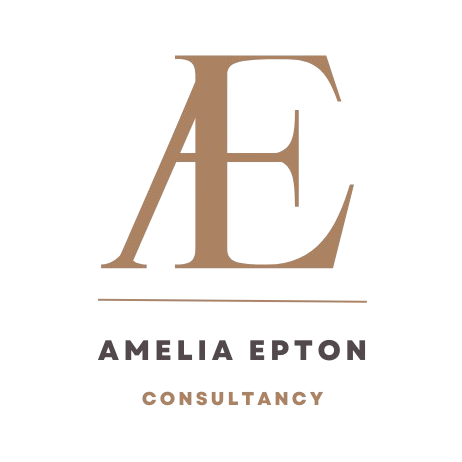
The UK Giving Report 2025: What Charities Need to Know, and Do Next
The UK Giving Report has been released for 2025, it reveals charitable giving in Britain has reached a critical crossroads. With only 50% of the population donating in the past year, the lowest figure on record, we are witnessing a shift in how people choose to give, engage, and support the causes they care about. For charity leaders, fundraisers, and trustees, these findings help us to take a call to action.
In this blog, we explore what the data means, why the landscape is changing, and how charities can adapt their fundraising strategy, improve donor engagement, and futureproof their organisations in an increasingly competitive funding environment.
Key Takeaways: A Decline in Donors, Not Donations
The headline statistic from the report is stark: just 50% of UK adults donated to charity in the past 12 months. While the overall donation value remains relatively high, £15.4 billion in 2024, it’s coming from a shrinking pool of donors who are actually giving more per donation. This creates a precarious dependency and highlights the need for charities to diversify income streams and build new donors more intentionally.
🔹 Four million fewer donors compared to 2019
🔹 Young people (16–24) are giving less than ever, down to just 36%
🔹 Volunteering has dropped from 7.1 million in 2023 to 5.6 million in 2024
🔹 Health and children’s charities receive the largest share of donations
🔹 Digital giving methods (apps, websites, rounding up at tills) are rising in popularity, especially among under-35s
Why Is Giving Declining?
The causes are complex and interlinked, from economic pressures with the cost-of-living crisis, to cultural shifts. Affordability is the top reason cited by non-donors, particularly among the 35–54 age group. Lack of trust is a growing barrier, especially among older adults, while younger people report a lack of interest or connection to charitable causes.
The report also shows a growing disconnect between how people are willing to give (i.e., digitally, on their own terms) and how many charities have not yet adapted their fundraising strategies to align with these preferences. The decline in cash use, fewer in-person fundraising events, and the rising expectation for transparency and impact reporting are all shaping new donor behaviours.
From Data to Action: 5 Strategic Recommendations
Here are five ways that charities particularly small to medium-sized organisations can respond to these trends:
1. Rebuild a Culture of Giving through Storytelling
Donors are motivated by personal, emotional connections. The report showed that for most donors, their last donation was prompted by someone they know personally (friend, family member, or colleague). Elevate lived experience stories from someone close to you, community impact, and frontline voices across all platforms. Make your "why" visible, not just your "what".
2. Invest in Donor Retention Strategies
With fewer people giving, holding onto existing donors is more important than ever. Use CRM systems to personalise stewardship, thank donors promptly, and show them the change their gift has made.
3. Optimise for Digital Giving
Ensure your website is donation-friendly, mobile-optimised, and integrates modern tools like contactless donations, QR codes, and giving apps. Meet younger donors where they are at which is online.
4. Strengthen Volunteer Engagement
Volunteering numbers are falling, particularly among women. Review your volunteer offer: is it flexible, meaningful, and well-communicated? Consider co-creation with volunteers to rebuild a sense of ownership and purpose.
5. Tackle Trust and Transparency Head-on
Only 12% of donors are happy for their gift to fund a CEO salary, yet 71% will support service delivery costs. Break down your budget simply and explain why core costs matter. Be open about where money goes and why.
Framing it as an Opportunity for Renewal
The UK Giving Report 2025 highlghts the changing picture of donors, but it also provides an exciting opportunity for charities to renew their approaches. It’s an invitation to rebuild trust, deepen relationships, and adapt our charity fundraising models to better reflect modern expectations. We don’t just need more giving, we need better giving: more inclusive, intentional, and impactful.
Charities today are not just competing for individual donations, but also for funding in an increasingly competitive grant landscape. If you're looking to understand how to stand out in the crowded world of grants, our blog post on Charities Face Intensifying Competition in Grant Funding Landscape can offer valuable insights into standing out to funders.
At Amelia Epton Consultancy, we help charities navigate change with clarity, confidence and purpose. Whether you need support developing your next income generation strategy, applying for funding, or making sense of sector trends. Click the Contact Me button below to arrange a chat.
Sign up to receive more tips, advice and guidance -->
About the author: Amelia Epton is a charity consultant, grant writing expert and Grant Assessor with The Fore, offering unique sector insight into funding practices and successful proposal design.
Ask Amelia

How to Grow, Fund & Strengthen Your Charity
This section aims to provide straightforward support for charities wanting to thrive. Sometimes its hard to know the answers to the questions you have about the charity sector, especially if you are a new charity leader or founder.This section offers clear, actionable advice for charities looking to expand their reach, secure sustainable funding, and build a strong organisational foundation.Here are some common questions I have been asked in my time working as a Charity Consultant.Whether you are a newly established charity or an experienced organisation aiming for growth, this section may help you find the answer to what you are looking for!
Sign up to receive more tips, advice and guidance -->
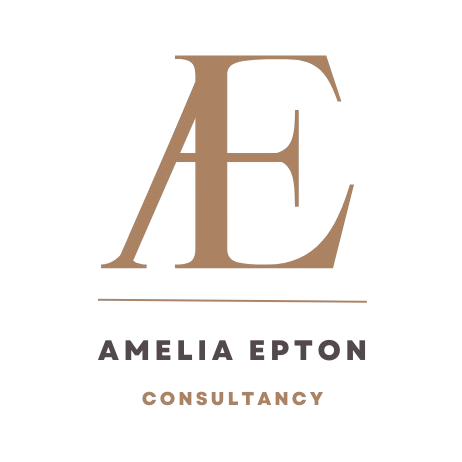
ASK AMELIA
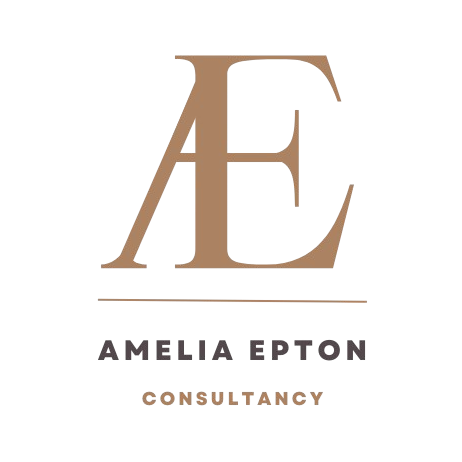
📌 Starting & Running a Charity
What do I need to start a charity in the UK?
To start a charity in the UK, you need a clear charitable purpose that benefits the public, a governing document (such as a constitution), and a board of trustees. The charity must be registered with the relevant regulatory body if its income exceeds £5,000 annually:🔹England and Wales: Register with the Charity Commission.🔹Scotland: Register with the Office of the Scottish Charity Regulator (OSCR).🔹Northern Ireland: Register with the Charity Commission for Northern Ireland.You'll also need to choose a legal structure (such as a CIO, charitable company, or trust) and set up financial systems to manage income and expenditure.
What is the difference between a CIO, CIC, and registered charity?
🔹Charitable Incorporated Organisation (CIO): A CIO is a charity with its own legal status, offering limited liability for trustees and members. It is regulated by the Charity Commission and can apply for charity status, allowing it to access tax exemptions and public funding. Unlike traditional charitable companies, a CIO doesn't need to be registered with Companies House.🔹Community Interest Company (CIC): A CIC is a type of social enterprise that is focused on benefiting the community. It is not a charity, but it can operate similarly to one. CICs are regulated by the CIC Regulator and are not eligible for the same tax exemptions or public grants available to registered charities. They must demonstrate a community benefit in their operations.🔹Registered Charity: A registered charity is a non-profit organisation dedicated to a specific charitable purpose and registered with the Charity Commission (or OSCR in Scotland, or the Charity Commission for Northern Ireland). Registered charities benefit from tax relief and can access a wide range of funding opportunities. They must comply with charity law and are subject to regulatory oversight.
How do I know which of CIO, CIC, and registered charity is better for me?
🔹Choose a CIO if your primary goal is charitable work, and you want the benefits of limited liability for trustees and members, access to charity funding, and tax exemptions. It’s regulated solely by the Charity Commission, without needing to register with Companies House.🔹Choose a CIC if you want more flexibility in generating income and structuring operations, and if you’re focused on community benefit but also wish to reinvest profits. However, CICs aren’t eligible for the same funding and tax exemptions as charities.🔹Choose a Registered Charity if your main aim is non-profit, charitable work, and you need access to public funding, charity grants, and tax exemptions. This is the best choice for organisations focused on traditional charity work.
Do I need to register a charity with the Charity Commission?
If your charity’s income is over £5,000 a year, or if your charity is a charitable incorporated organisation (CIO), you must register with the Charity Commission. Registration allows your charity to gain legal recognition, access certain funding, and benefit from tax exemptions.
What are the main challenges new charities face?
New charities face challenges such as securing funding, building a strong reputation, recruiting and retaining skilled staff or volunteers, and establishing effective governance. They may also struggle with growing their networks and demonstrating measurable impact, particularly in the early stages.
Can I pay myself if I run a charity?
Yes – but it depends entirely on your legal role within the charity and how the organisation is structured.
1. Are you a Founder, Trustee, or Paid Member of Staff?
🔹Founder: This is not a legal status in charity law. Being the person who started or developed the charity’s idea does not automatically give you any entitlement to pay. What matters is whether you are also a trustee, employee, or both.🔹Trustee: Trustees are legally responsible for the charity’s governance. They must act in the best interests of the charity and cannot normally be paid for their role as a trustee. Charity law presumes trustees are volunteers, and the default position is no personal financial benefit.🔹Paid Member of Staff: You can be employed by the charity and receive a salary if you hold an operational role (e.g. CEO, project manager, administrator), but you cannot be a trustee at the same time.
2. Can a Trustee Also Be Paid?
Only in exceptional and clearly justified circumstances. The rules are strict:🔹The charity’s governing document must allow for trustee payment, or you must obtain express authorisation from the Charity Commission.🔹A paid trustee cannot take part in decisions about their own pay or appointment. Independent trustees must lead the process and document it fully.🔹Payment must be reasonable, necessary, and in the charity’s best interests.An example in practice could be:
A trustee is a qualified therapist needed for a funded project. Payment allowed if no conflict of interest and properly authorised.In short, you should not be both a trustee and a paid employee unless there is a compelling reason and full legal compliance.
3. What Does This Mean for Founders?
If you are the founder and want to be paid for working for the charity, the cleanest and most compliant route is:✅ Step down as a trustee (or don’t appoint yourself in the first place)
✅ Be appointed as a paid employee through an open and documented process
✅ Allow the trustee board to lead decisions on recruitment, pay, performance, and oversightThis ensures:You meet Charity Commission expectations for transparency and independenceYou avoid conflicts of interestYou uphold public trust in how the charity is run
How can a charity attract donors and supporters?
Attracting donors and supporters involves creating a strong, compelling case for your charity’s mission and demonstrating the impact of donations. Engaging through social media, hosting events, building relationships with potential donors, and offering transparency about how funds are spent can all help attract long-term supporters.
Whether you are new to the charity sector or simply need expert support to optimise your organisation, I’m here to help.👉 Contact me today for a free consultation.
Sign up to receive more tips, advice and guidance -->
ASK AMELIA
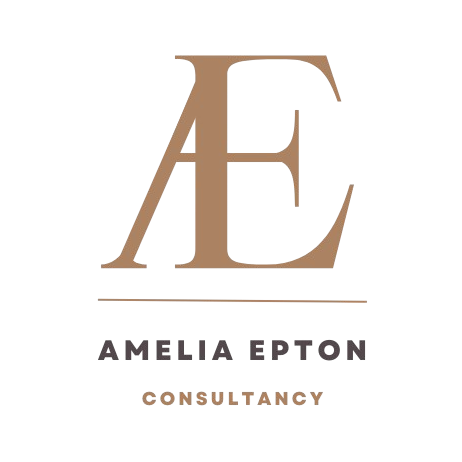
📌 Charity Strategy, Governance & Growth
How can a charity grow sustainably?
Sustainable growth for a charity involves a combination of strong leadership, diversified funding, volunteer support and continuous evaluation of programmes. Charities should invest in capacity building, creating relationships with donors, and increasing community engagement. It is also crucial to have a long-term strategic plan that includes both short-term goals and long-term ambitions for impact.
What are the responsibilities of a charity trustee?
Charity trustees are legally responsible for the governance and management of a charity. There needs to be a minimum of 3 trustees on a charity board. Their key duties include ensuring that the charity complies with all relevant laws and regulations, overseeing the financial management of the charity, setting strategic direction, and ensuring that the charity’s mission is being carried out effectively. Trustees must act in the best interests of the charity and its beneficiaries.
What does a good charity business plan include?
A good charity business plan should outline the charity’s mission, goals, and strategic priorities. It should include detailed financial projections, a fundraising strategy, a marketing plan, an evaluation framework, and an analysis of the charity’s strengths, weaknesses, opportunities, and threats. The plan should also include an operational strategy, addressing staffing, resources, and governance.
How can charities demonstrate impact effectively?
Charities can demonstrate their impact by collecting data on key outcomes and using this information to tell compelling stories about their work. Regular evaluation of programmes, feedback from beneficiaries, and reporting on metrics such as improved wellbeing or increased access to services are vital in proving the effectiveness of a charity's work. This is especially important when seeking funding, as recorded impact demonstrates to funders that your organisation is capable and 'fundable'."
How can charities build partnerships and collaborations?
Building partnerships involves identifying potential organisations who share similar values and goals. Charities can approach businesses, other nonprofit organisations, and local authorities to explore mutually beneficial relationships. Successful partnerships are built on trust, transparency, and a shared commitment to achieving common objectives.
What is capacity building in the charity sector?
Capacity building refers to strengthening the internal structure of a charity, enhancing its ability to fulfil its mission. This includes improving skills, increasing financial stability, developing stronger leadership, and building networks and partnerships. Capacity building ensures that charities can grow effectively and meet the demands of their beneficiaries.
Why is equity, diversity and inclusion important in charity governance?
Equity, diversity, and inclusion (EDI) or Diversity, Equity, and Inclusion(DEI) in charity governance ensures that decision-making reflects the needs of all communities, particularly those that are underrepresented. EDI or DEI promotes fairness and helps to create an organisational culture where everyone feels valued and has equal access to opportunities. It also ensures that charities can better understand and address the needs of diverse groups.
Whether you are new to the charity sector or simply need expert support to optimise your organisation, I’m here to help.👉 Contact me today for a free consultation.
Sign up to receive more tips, advice and guidance -->
ASK AMELIA
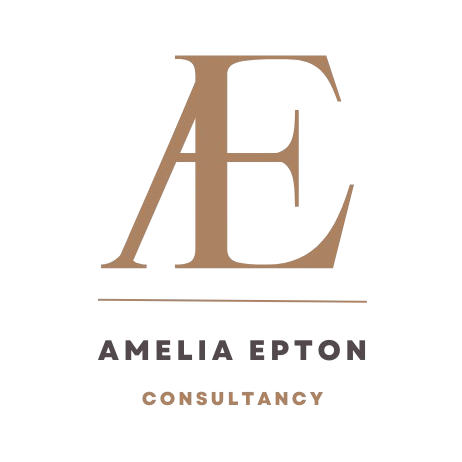
📌 Charity Funding & Grant Applications
How do charities get funding in the UK?
Charities in the UK secure funding from a variety of sources, including grants, donations, fundraising events, and corporate partnerships. Grants can be applied for through government schemes, charitable foundations, or trusts, while donations may come from individual supporters, businesses, or online fundraising platforms. Charities may also generate income through selling services or products, as well as securing sponsorships from corporations.
What is the difference between a grant and a donation?
A grant is typically a sum of money awarded for a specific purpose, often with certain conditions attached. Grants are often given by foundations, government, or businesses and are generally for projects or services that align with the funder's goals. A donation, on the other hand, is a voluntary contribution of money or goods, with no specific conditions attached. Donations are generally unrestricted and can be used by the charity as it sees fit.
How can small charities apply for funding successfully?
Small charities can increase their chances of success by clearly defining their mission, focusing on the impact of their work, and demonstrating the sustainability of their projects. Successful grant applications for small charities often involve showing a deep understanding of their beneficiary needs and how the proposed funding will address these needs. It's also important to research and target grants that align with the charity’s specific goals and activities, ensuring that the application meets the funder's criteria.
Where can I find grant opportunities for my charity?
There are several resources available for identifying potential funders, including grant databases such as GrantFinder, Funds Online, the Directory of Social Change, MyFundingCentral, and the Charity Excellence Framework. The Charity Commission (and its equivalents in Scotland OSCR and Northern Ireland), professional networks, fundraising events, and local community foundations can also be valuable sources of information.
Where can I find grant opportunities for my charity?
A successful grant application is made up of several key components. The most important to demonstrate are:🔹Need: The specific issue the charity aims to address and the impact it will have on beneficiaries.🔹Objectives: Clear, measurable goals that are achievable within the grant’s timeframe.🔹 Outcome: The expected results and how they will be evaluated to assess effectiveness.🔹 Sustainability: A plan for the long-term continuation of the project after the grant ends.🔹Alignment: How the charity’s project aligns with the funder's mission and priorities.🔹 Clarity: Well-structured, concise, and compelling writing.
Why do most grant applications get rejected?
Grant applications often get rejected due to:🔹 Poor alignment with funder priorities: If the application does not meet the funder's specific goals or criteria, it is unlikely to be successful.🔹 Lack of evidence: Failing to provide sufficient data, research, or supporting documentation to demonstrate the need for funding or the expected impact.🔹Unrealistic objectives: Setting goals that are too ambitious or not achievable within the proposed timeframe or budget.🔹Weak financial planning: A poorly prepared budget or financial plan can raise red flags for funders.🔹 Incomplete applications: Missing information or failure to follow application guidelines can lead to disqualification.🔹 Oversubscription – As harsh as it may seem, applications can be rejected even when strong across all areas, simply because the fund is oversubscribed. It’s not a reflection of the project’s value, but of limited resources. Where possible, ask for feedback and consider reapplying in a future round or approaching alternative funders with similar priorities.
What are unrestricted funds and why are they important?
Unrestricted funds are donations or grants that a charity can use for any purpose within its general mission, rather than being restricted to a specific project or programme. These funds are vital for the day-to-day running of a charity, covering core costs such as administration, staff salaries, and operational expenses. Having unrestricted funds allows a charity to maintain flexibility, adapt to changing circumstances, and ensure long-term sustainability.
What should be included in a charity funding strategy?
A charity funding strategy should include:🔹 Clear goals and objectives: What the charity aims to achieve with the funding.🔹 Diverse funding streams: A mix of grants, donations, earned income, and other sources of funding.🔹 Targeted funding approaches: Identifying appropriate funders and understanding their priorities.🔹 Financial management: A plan for how the funds will be managed and spent.🔹 Monitoring and evaluation: Processes for assessing the impact of funded projects and ensuring accountability.
Whether you are new to the charity sector or simply need expert support to optimise your organisation, I’m here to help.👉 Contact me today for a free consultation.
Sign up to receive more tips, advice and guidance -->
Join the Waitlist for The Bid Writing Excellence AcademyTo be the first to know when the The Bid Writing Excellence Academy opens its doors, please fill out the form below. By signing up, you'll receive exclusive updates and early access to the course.To sign up to the waiting list for the course please fill out your details below. In the message add "course sign up"
When submitting this form, you confirm you are aware of the following conditions:
All private information filled in will not be externally shared.
You can opt out of the course after you receive the registration information. Our privacy policy can be viewed below to learn how we handle your data.
How we use your data When you sign up to receive our free guide, we collect your name and email address so we can send you the resource and keep in touch via email. These emails may include relevant information, updates, offers, or resources related to our services. You can unsubscribe at any time. We will never sell or share your data with third parties for marketing purposes. We store and process your data securely within Microsoft 365, which is fully compliant with UK GDPR and ISO/IEC 27001 standards. Access to data is restricted to authorised personnel only, and we follow best practices including secure passwords, two-factor authentication, and device encryption to protect your information. which is GDPR-compliant. Your rights Under the UK General Data Protection Regulation (UK GDPR), you have the right to access, amend, or delete your data at any time. To make a request or ask a question about how we handle your data, please contact us at [email protected]
Get your free guide: "Top 10 Tips for Writing Winning Grant Applications"
Enter your email below to receive your free guide. You’ll also get occasional emails with useful tips, tools, and updates from AE consultancy.
When submitting this form, you confirm you are aware of the following conditions:
All private information filled in will not be externally shared.
You can opt out of the course after you receive the registration information. Our privacy policy can be viewed below to learn how we handle your data.
How we use your data When you sign up to receive our free guide, we collect your name and email address so we can send you the resource and keep in touch via email. These emails may include relevant information, updates, offers, or resources related to our services. You can unsubscribe at any time. We will never sell or share your data with third parties for marketing purposes. We store and process your data securely within Microsoft 365, which is fully compliant with UK GDPR and ISO/IEC 27001 standards. Access to data is restricted to authorised personnel only, and we follow best practices including secure passwords, two-factor authentication, and device encryption to protect your information. which is GDPR-compliant. Your rights Under the UK General Data Protection Regulation (UK GDPR), you have the right to access, amend, or delete your data at any time. To make a request or ask a question about how we handle your data, please contact us at [email protected]
Get your own downloadable digital guides to build your skills.Learn More ->
This course equips you with essential skills, templates, and tools to craft successful grant applicationsLearn More ->
Get your own digital resources with document which will help you with your learning and executionLearn More ->

What is Included?
A flexible, budget-friendly option offering access to key knowledge and skills, with the option to expand with the Digital Resources supplement. Suitable for individuals seeking a strong foundation in bid writing.Includes: Bid Writing Guide (Digital Format)A comprehensive, expertly crafted guide designed to teach the fundamentals of successful bid writing.
How to Order
You can purchase this guide in one of two ways:
Option 1: Invoice (For Organisations/Charities)
If you are purchasing on behalf of an organisation and prefer to be invoiced:Please email us at [email protected] with your organisation’s name, contact details, and the number of guides required.We will issue an invoice and provide access upon confirmation.
If you are purchasing on behalf of an organisation and prefer to be invoiced:Please email us at [email protected] with your organisation’s name, contact details, and the number of guides required.We will issue an invoice and provide access upon confirmation.
Option 2: PayPal (For Individuals)
Click the“Check Out”button below.Select the quantity and enter your payment details.You will be redirected to a page to fill out your contact details, this is required to grant you access.
What is Included?
The Professional ToolkitThis package combines foundational knowledge with advanced tools and learning opportunities, making it an excellent option for those ready to take their skills to the next level.Suitable for professionals who want to enhance their skills with advanced tools and resources.Includes:1. Bid Writing Guide (Digital Format): A comprehensive, expertly crafted guide designed to teach the fundamentals of successful bid writing.2. Online Bid Writing Course: Full access to an interactive, certificate-accredited course.• How to use this course• Lesson Content:1. Introduction Video
2. Lesson 1- Overview of the Course
3. Lesson 2- Understanding the Funders and their Criteria
4. Lesson 3a – Laying the Foundation for a Successful Funding Bid
5. Lesson 3b- Laying the Foundation for a Successful Funding Bid (Case for Support)
6. Lesson 4- Writing the Bid
7. Lesson 5- Polishing your Bid
8. Lesson 6- Submitting your Bid
9. Lesson 7- Putting it all together3. Resources Pack: 6 essential templates for structuring bids.• Bid Development Project Plan
• Consultation Framework
• Funders Post Application Feedback Database
• Funders Profile Template
• Master Funding Bid Checklist
• Simple Risk Assessment and Scoring Matrix4. Exclusive FAQ Session Access: One-time access to a recorded session answering key questions for new bid writers.
How to Order
You can purchase this in one of two ways:
Option 1: Invoice (For Organisations/Charities)
If you are purchasing on behalf of an organisation and prefer to be invoiced:Please email us at [email protected] with your organisation’s name, contact details, and the number of licenses required. Discount will be given for 5 licenses at £449.We will issue an invoice and provide access upon confirmation.
Option 2: PayPal (For Individuals)
Click the“Check Out”button below.Select the quantity and enter your payment details.You will be redirected to a page to fill out your contact details, this is required to grant you access.Note: The email you use in the PayPal payment will be used as your sign in access.
What is Included?
This package offers premium support and exclusive tools to ensure the user’s confidence and success in bid writing.Suitable for organisations seeking to build comprehensive bid-writing skills.Includes:1. Bid Writing Guide (Digital Format): A comprehensive, expertly crafted guide designed to teach the fundamentals of successful bid writing.2. Online Bid Writing Course: Full access to an interactive course.• How to use this courseLesson Content:1. Introduction Video
2. Lesson 1- Overview of the Course
3. Lesson 2- Understanding the Funders and their Criteria
4. Lesson 3a – Laying the Foundation for a Successful Funding Bid
5. Lesson 3b- Laying the Foundation for a Successful Funding Bid (Case for Support)
6. Lesson 4- Writing the Bid
7. Lesson 5- Polishing your Bid
8. Lesson 6- Submitting your Bid
9. Lesson 7- Putting it all together• Quiz’s – What grant personality am I?3. Resources Pack: 6 essential templates for structuring bids.
• Bid Development Project Plan
• Consultation Framework
• Funders Post Application Feedback Database
• Funders Profile Template
• Master Funding Bid Checklist
• Simple Risk Assessment and Scoring Matrix4. Exclusive FAQ Session Access: Access to a recorded session answering key questions for new bid writers.5. Workbook: Worksheet to guide users through their bid writing journey, complete with exercises and examples.• Five 5’s Worksheet
• Aligning to the Funders Priorities Scoping Documents
• Creating a Powerful Elevator Pitch Worksheet
• Project Sustainability Worksheet
• Storytelling worksheet6. Planning Tools: A weekly planner tool, with performance data dashboard to help users map out their approach to the stages to bid writing.
How to Order
You can purchase this in one of two ways:
Option 1: Invoice (For Organisations/Charities)
If you are purchasing on behalf of an organisation and prefer to be invoiced:Please email us at [email protected] with your organisation’s name, contact details, and the number of licenses required. Discount will be given for 5 licenses at £599.
Option 2: PayPal (For Individuals)
Click the“Check Out”button below.Select the quantity and enter your payment details.You will be redirected to a page to fill out your contact details, this is required to grant you access.Note: The email you use in the PayPal payment will be used as your sign in access.
What is Included?
Single Supplement: Digital Resources£35There are two options of digital resources available, each will be priced at £35.• Resources Pack: 10 essential templates for structuring bids.•Bid Development Project Plan•Consultation Framework•Funders Post Application Feedback Database•Funders Profile Template•Master Funding Bid Checklist•Simple Risk Assessment and Scoring Matrix•Basic Budget Template•Project Plan Template•Setting Goals and Objectives Template•Measuring Impact TemplateorWorkbook:• Five 5’s Worksheet
• Aligning to the Funders Priorities Scoping Documents
• Creating a Powerful Elevator Pitch Worksheet
• Project Sustainability Worksheet
• Storytelling worksheet
How to Order
You can purchase this in one of two ways:
Option 1: Invoice (For Organisations/Charities)
If you are purchasing on behalf of an organisation and prefer to be invoiced:Please email us at [email protected] with your organisation’s name, contact details, the type, and the number you require.
Option 2: PayPal (For Individuals)
Click the“Check Out”button below.Select the quantity and enter your payment details.You will be redirected to a page to fill out your contact details, this is required to grant you access.Note: The email you use in the PayPal payment will be used as your sign in access.
What is Included?
Premium Single Supplement: Digital Resources£50• Planning Tools
• Grants Funding Dashboard
• Funding Targets Calculator
• Grants Self-Assessment Tool
• What Grant Personality Type am I?
How to Order
You can purchase this in one of two ways:
Option 1: Invoice (For Organisations/Charities)
If you are purchasing on behalf of an organisation and prefer to be invoiced:Please email us at [email protected] with your organisation’s name, contact details, and the number you require.
Option 2: PayPal (For Individuals)
Click the“Check Out”button below.Select the quantity and enter your payment details.You will be redirected to a page to fill out your contact details, this is required to grant you access.Note: The email you use in the PayPal payment will be used as your sign in access.
Need Help Deciding?
A 1 hour personalised review of one bid, offering detailed feedback and actionable insights.
How to Order
You can purchase this in one of two ways:
Option 1: Invoice (For Organisations/Charities)
If you are purchasing on behalf of an organisation and prefer to be invoiced:Please email us at [email protected] with your organisation’s name, contact details, and the number you require.
Option 2: PayPal (For Individuals)
Click the“Check Out”button below.Select the quantity and enter your payment details.You will be redirected to a page to fill out your contact details, this is required to grant you access.Note: The email you use in the PayPal payment will be used as your sign in access.
Need Help Dedicing?
The two videos below introduce the Bid Writing Excellence Academy and explain the packages and pricing available.
Hello from Amelia
Funding Sucess your Way Prices and Packages
BLOG
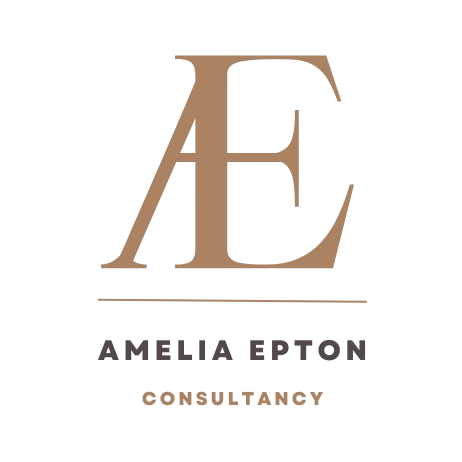
Is your charity ready for funding - really?
Funding Foundation Pyramid
It takes more than just a good well written application....In today’s competitive funding landscape, most charities are submitting strong bids. They have got impactful projects, meaningful missions, and are delivering real change.
So why do some still miss out?
Because funders are looking for more.When every application is good, decisions come down to the smallest details like your people, your strategy, your systems, your capacity to deliver. Even brilliant charities can lose out because they are not seen as “fundable organisations” compared to others in the funding round. There are internal gaps that hold them back.That’s why I created the Funding Foundation Pyramid, it’s a simple practical tool to help charities reflect on five key levels of organisational strength that underpin successful fundraising.Whether you are brand new to fundraising or trying to scale your income, this framework shows you what needs strengthening and why it matters.🔻 Here’s how it works, from bottom to top:1️⃣ Organisational Health
Strong governance, clear mission, financial management, up-to-date policies, and legal compliance, these are your foundations. If the base is shaky, no funder will invest.2️⃣ Strategic Direction
Where are you going, and how will you get there? This means a clear income mix, defined funding streams, a healthy pipeline, and solid plans for growth.3️⃣ Infrastructure & Capacity
Do you have the right systems, people, time, system, tools and funding mix to deliver? Capacity isn’t just about having enough staff, it’s about agility, robust systems, and the strength to deliver. Because a brilliant project without the capacity to deliver is still a risk.4️⃣ Relationships & Visibility
Funders don’t just back great ideas, they back organisations that others believe in too. That starts with a clear, compelling Case for Support and genuine relationships with funders, partners, and stakeholders.
Visibility builds trust. Relationships build momentum.5️⃣ Resilience & Growth
This is where sustainability lives: learning, innovation and forward-thinking. It’s what takes a charity from surviving to thriving.The pyramid helps you spot internal gaps, align your strategy, and shift from simply submitting strong applications to becoming a truly fundable organisation.Download below 🔻
About the author: Amelia Epton is a charity consultant, grant writing expert and Grant Assessor with The Fore, offering unique sector insight into funding practices and successful proposal design.
FUNDING FOUNDATION PYRAMID - FREE SELF ASSESSMENT TOOL
This free self-assessment tool to help you use it in practice to identify what’s strong, what’s missing, and where to focus next.
It’s designed to help charity leaders, fundraisers, and trustees reflect on the five core building blocks that sit beneath successful fundraising.Download below 🔻
Sign up to receive more tips, advice and guidance -->
Sign up
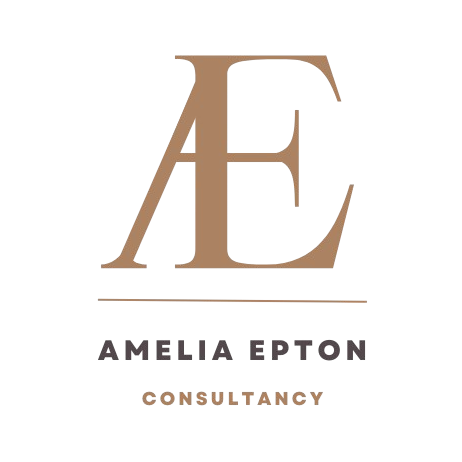
Sign up to get helpful tips, practical advice, and expert guidance delivered straight to your inbox. Whether you're just starting out or looking to grow, I'm here to support your journey.
Sign up
-->
BLOG
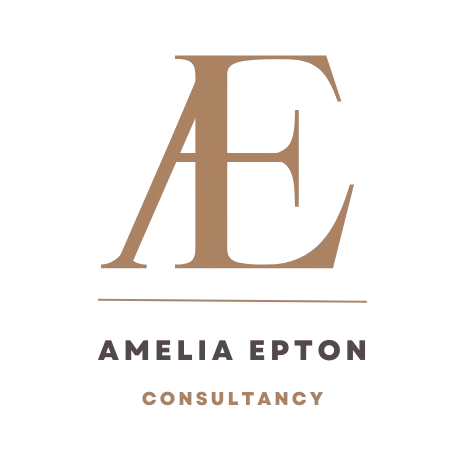
The Five C’s of Funding Readiness:
Is Your Charity Truly Ready to Be Funded?
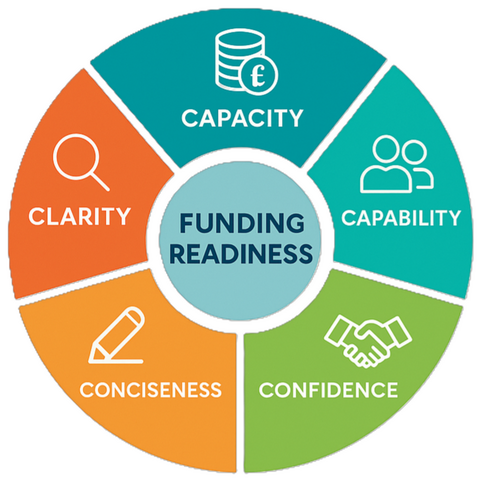
When I work with small charities, I see the same challenge repeatedly: applications keep coming back unsuccessful, not because of poor writing, but because the organisation might not be as ready as they thought to be funded.Funders are looking for confidence in the charity behind the project or core funding request to the people, systems, and processes that ensure funding delivers real impact.This is why I developed the Five C’s Framework - a practical, structured tool to test and strengthen your funding bids. By considering each of these five elements, charities can pinpoint gaps, highlight strengths, and improve their chances of success getting the funding you deserve for your vital work!
1. Capacity- Do You Have the Resources to Deliver?
Capacity is about the tangible and intangible resources your organisation has available to implement a project effectively. Funders want to see that your charity has sufficient staff, volunteers, partnerships, financial backing, and operational infrastructure in place.Why it matters: Even the most innovative project idea can fail if the organisation doesn’t have the resources to execute it. Funders are investing in the organisation as much as the project itself.Practical ways to demonstrate capacity:🔹Track and report volunteer numbers, hours contributed, and roles undertaken.🔹Document formal partnerships with community organisations, local authorities, or businesses.🔹Outline operational support systems, such as IT infrastructure, HR policies, and governance structures.Example:
We have secured diverse funding sources, including £10,000 from local government grants, £2,000 from corporate sponsorships, and £2,000 from individual donors. We have a dedicated team of 2 full-time staff and over 30 volunteers who are trained to deliver our programmes effectively. Our partnerships with three local community centres also provide us with additional space and resources to expand our services.
2. Capability – Do You Have the Right Skills and Expertise?
Capability demonstrates that your team can turn plans into results. Funders want evidence that your staff and volunteers have the knowledge, qualifications, and experience needed to deliver measurable outcomes.Why it matters: Funders want to minimise risk. Highlighting capability shows that your organisation can implement the project professionally and achieve real impact.Practical ways to demonstrate capability:🔹Highlight staff qualifications, training, and relevant professional experience.🔹Present measurable outcomes from previous projects, including statistics and case studies.🔹Include structured training plans for volunteers to ensure delivery standards.🔹Explain your project management systems, including monitoring, evaluation, and reporting.Example:
We have over 15 years of experience in delivering mental health support services. Our staff includes three qualified therapists, two social workers, and a programme manager with a background in clinical psychology. We have successfully delivered similar programmes, including a recent initiative that supported 200 individuals over six months, achieving a 75% improvement in participants' wellbeing scores on the Warwick Edinburgh Mental Wellbeing (WEMWBS) Scale.
3. Confidence – Can You Inspire Trust?
Confidence is about establishing credibility. Funders invest in people as much as projects, and they need assurance that your organisation is trustworthy, reliable, and capable of achieving the desired impact.Why it matters: Without confidence, funders may perceive even a well thought out or designed project as risky. Confidence is built through a combination of track record, governance, reputation, and community engagement.Practical ways to demonstrate confidence:🔹Include client or beneficiary testimonials demonstrating impact.
🔹Highlight awards, recognitions, or media coverage.
🔹Explain governance structures and accountability measures clearly.
🔹Show collaboration with recognised partners or authorities.Example:
We have built a reputation for reliable and impactful services, evidenced by the testimonials of our service users. “I really wouldn’t be where I am today without the support from this charity,” said one beneficiary. Additionally, our programme has received local recognition, including an award from the city council for outstanding community impact, which reinforces our credibility and trust within the community.
4. Conciseness – Are You Presenting Information Clearly?
Funders are busy, sometimes with a time limit of just 10 mins to read and assess an application. They need applications that are concise, well-structured, and easy to navigate. Conciseness ensures that key points stand out and reduces the risk of important information being overlooked.Why it matters: long-winded or disorganised proposals can frustrate assessor, even when the content is strong as it is harder to get to the key information quickly. Clear, succinct writing demonstrates professionalism and respect for the reader’s time, making the decision for the assessor easier, especially when they are pressed for time.Practical ways to demonstrate conciseness:🔹Use bullet points, subheadings, and tables to organise information.
🔹Avoid jargon, technical terms, or unnecessary detail.
🔹Stick to funder word limits while maintaining clarity.
🔹Emphasise measurable outcomes and key data upfront.Example:
In the past year, our programme provided 500 meals to low-income families, supported 300 individuals with employment training, and helped 100 people secure permanent housing. These efforts resulted in a 30% reduction in local homelessness.
4. Conciseness – Are You Presenting Information Clearly?
Clarity is about ensuring your bid is transparent, jargon-free, and accessible. Funders need to understand what you are doing, why it matters, and how success will be measured, in the quickest of time.Why it matters: Confusion creates doubt. Clear, transparent communication demonstrates organisation, focus, and accountability, all of which increase funder confidence.Practical ways to demonstrate clarity:🔹Explain technical terms or processes in simple language.
🔹Link activities directly to measurable outcomes with clear KPIs.
🔹Use plain English to describe your mission, approach, and budget.
🔹Include visuals such as charts, infographics, or diagrams to illustrate complex concepts.Example:
Our proposed project aims to support young people aged 16–25 in developing employability skills through weekly workshops and one-on-one mentoring sessions. We will deliver 50 workshops annually, benefitting 200 young people by improving their job readiness and helping them secure meaningful employment.
Seeing Things Through the Funder’s Lens
Over the years, I’ve written hundreds of grant applications. In my role as a Strategic Application Consultant at The Fore, where I assess funding bids, I’ve come to recognise the key ingredients that make an application stand out.One of the most important factors? Funders need to believe in the organisation behind the project. A strong idea isn’t enough on its own. Funders are looking to invest in your team, your systems, and your ability to deliver impact. When I assess applications at The Fore, I’m seeking out organisations that demonstrate strong leadership and organisational health first and foremost so I can build my trust in them. These are the foundations that give funders confidence their investment will be well-managed and lead to real, lasting change.That’s why I developed the Five C’s of Funding Readiness. This framework helps ensure your application doesn’t just explain what your project will do, but clearly shows why your charity is the right one to deliver it.Before you submit your next funding bid, run it through the Five C’s. You’ll quickly spot any gaps, strengthen weaker areas, and highlight your organisation’s strengths making your application more compelling, credible, and fundable!✨ For more insights, practical tools, and step-by-step guidance on funding readiness, subscribe to my newsletter on the bottom of the page.
About the author: Amelia Epton is a charity consultant, grant writing expert and Grant Assessor with The Fore, offering unique sector insight into funding practices and successful proposal design.
Sign up to receive more tips, advice and guidance -->
HELPING BUSINESSES CREATE CHARITABLE ARMS AND FOUNDATIONS
Turn Your CSR and ESG Ambitions into Lasting Impact
Many businesses want to give back but are unsure how to do it effectively. Some choose one-off donations, others set up funds that are managed elsewhere, but very few take the step of creating their own independent charitable foundation. That’s where I come in.I bring 17 years of experience in the charity sector, including a decade in senior leadership and consultancy, and seven years as the founding CEO of Premier Foundation. This was a corporate-created charity that I developed from a simple business plan into a fully operational organisation. Initially established to reflect the social purpose of its founding company, it grew to stand as an independent entity in its own right. From the ground up, I built the charity by shaping its governance, developing its strategy, recruiting trustees, and leading it to become a credible, sustainable, and impactful organisation.At AE Consultancy, I can support businesses to build charitable arms and foundations that are compliant, sustainable, and aligned with their values. Whether you want to create a grant-giving foundation or a delivery-focused charity, I provide the end-to-end expertise needed to turn ambition into action.
Why Create a Charitable Arm?
A corporate charitable arm gives your business:
🔹 Visibility and credibility – your organisation’s brand is directly linked to the positive change it drives.
🔹 Independence – a registered charity with its own governance and trustees, not just a fund managed behind the scenes.
🔹 Control – freedom to choose how funds are distributed or programmes delivered.
🔹 Sustainability – a lasting legacy that aligns with your CSR or ESG strategy.
Unlike donor-advised funds or outsourcing models, your foundation is recognised as a stand-alone entity with its own impact and voice.
My End-to-End Approach:
I specialise in taking businesses through every stage of creating a charitable arm:
Discovery & Planning
🔹Explore your CSR/ESG goals and how a foundation fits your wider strategy.🔹Assess whether a grant-giving or delivery model is the best option.🔹Provide a clear roadmap, timelines, and governance requirements.
Charity Set-Up & Governance
🔹Registering your charity with the Charity Commission.🔹Recruiting and training trustees for effective leadership.🔹Drafting key policies to ensure compliance and good governance.
Operationalisation & Impact
🔹Designing either a grant-making framework or programme delivery model.🔹Building fundraising and income strategies for sustainability.🔹Setting up monitoring and evaluation to evidence impact and reporting needs.
Why Work With Me?
My first-hand experience means I understand both the opportunities and the challenges of building a charitable arms or foundation. From Charity Commission registration to operational planning and funding growth, I provide the expertise to ensure your new charitable entity is not only compliant, but also impactful and sustainable. My practical knowledge of governance, fundraising, and impact delivery gives an end to end approach that legal firms and donor-advised fund providers simply don’t offer.
Take the First Step - Today!
If you are a business leader exploring how to create a charitable arm or foundation, I can guide you through the process with clarity and confidence.Book a free consultation today to discover how I can help you transform your corporate responsibility ambitions into a lasting legacy.






























